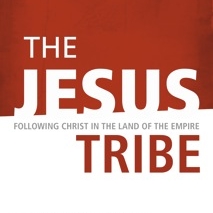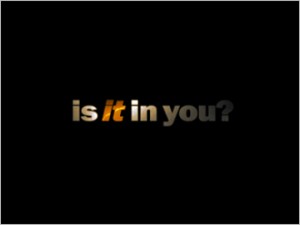There I sat, stranded in a continuing education conference for a week. The lectures made me sleepy. The content bored me to tears. The schedule, unrelenting, did not allow for more than fifteen minutes of freedom at a time. Oh, it was a long week. Even if the material and presenters had been more dynamic I don’t know how much it would have mattered. Seven days at an outdated hotel, six nights sleeping on a medieval torture devise (something the hotel comically called a “bed”), sitting for fifty hours on cheap, hard chairs was enough to crack up the hardiest of conference attendees.
Funny thing, the exhaustion of it all reminded me of sitting in church as a teenager. Suffering in the pew on a lackluster Sunday morning after a lively Saturday night was nothing short than penance. It was as if the preacher knew intimately of my sins, sown just hours before, for he bore down on me and my pounding head. All I wanted to do was get outside and breathe deeply. Even better would have been the opportunity to have stayed in the bed. But that was not an option at my house. On Sunday morning, as long as I lived under my father’s roof, I would be in church.
See, my parents were deeply committed to their congregation. My mother sang in the choir and attended prayer meetings. My father was an ordained deacon and taught adult Sunday school classes. As a result our family was in church on a regular basis, not just Sunday morning. Sunday nights, Wednesday nights, youth group, choir rehearsal, church clean-up day, Vacation Bible School: We did them all. I often tell people that I grew up with a ruthless drug problem. I was “drug” to church every time the doors were opened.
Was this a bad thing? No, not at all. This exposure formed my character and grounded me in ways I will never be able to assess fully. It birthed and incubated a faith that has sustained me throughout my life. Does this mean all my experiences were profitable? Not hardly. I witnessed a litany of religious failures: Moral “indiscretions” of those in leadership, manipulation by the strong-willed but weak-minded, factions and infighting, insincerity and legalism. And these do not account for my experiences in adulthood, experiences that if recounted, would blister this page.
Why give religion another chance? Why stick it out after all these years and all these letdowns? How can I persevere in faith when there are so many compelling reasons to leave it all in my rearview mirror? Good question. Truth be told, I have lost most of my faith in organized religion. I have little, if any, left. I have reached the point in my life, through hard experiences or harder cynicism, where I just don’t need the pomp and circumstance of organized religion.
But this does not mean I have lost faith in the Christ in which my parents sincerely believed; the Christ I still try to follow. The faith I attempt to keep is not a faith in people, pastors, church leaders, buildings or a particular denomination. It is a faith in Christ who transcends all of these. And strangely enough, as my faith in religion collapses I gain a greater trust in this man Jesus. For in the failures of organized religion he still lurks about. He dances and plays in these broken places, doing what he always does, inviting us to himself in spite of the many obstacles.
When I stand in a pulpit now and look out at a sometimes sleepy Sunday morning congregation, it is not the church to which I point them. Religion is not the answer to their troubles. Creeds, religious conviction, and Sunday rituals have little power in and of themselves. No, I point them to Christ who once said, “Come to me, all of you who are weary and carry heavy burdens, and I will give you rest. Let me teach you, and you will find rest for your souls.”

